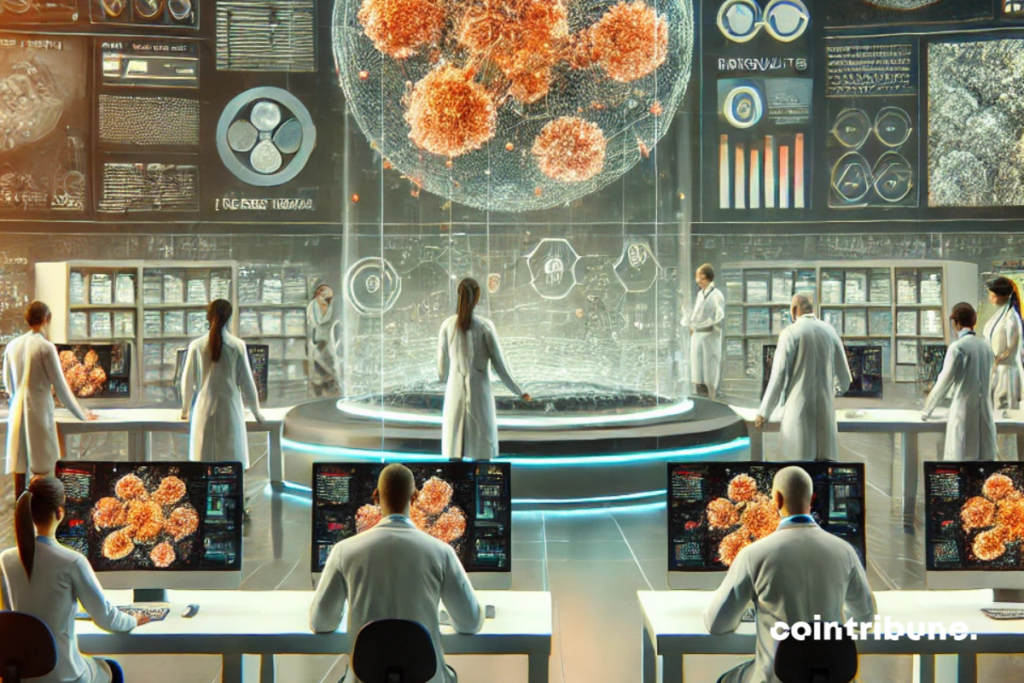This AI Detects Cancer with 96% Accuracy—Is This the Future of Diagnosis?
Artificial intelligence (AI) is gradually reshaping the contours of modern medicine, but a breakthrough could forever change cancer diagnosis. In fact, the CHIEF model, developed by Harvard Medical School, has just reached a historic milestone. Capable of detecting several types of cancer with an accuracy of 96%, it positions itself as one of the most promising tools for improving early diagnosis and prognosis evaluation. In the face of the growing challenges in oncology, this model opens up new perspectives for cancer research and treatment.

A revolutionary AI for cancer detection
The AI revolution in health is underway. Indeed, the CHIEF AI model (Clinical Histopathology Imaging Evaluation Foundation), developed by researchers at Harvard Medical School, was designed to excel in the detection and prognosis of 19 different types of cancer. With training based on 44 terabytes of data from 15 million unlabeled images and 60,000 complete tissue images, CHIEF has demonstrated extraordinary results. According to the researchers, this AI achieves an accuracy “up to 96%” in identifying cancers, which surpasses currently used AI methods by more than 36% in some cases. “Our ambition was to create a versatile AI platform capable of assessing a wide range of cancer evaluation tasks,” explains Professor Kun-Hsing Yu, the lead author of the study.
In addition to its detection capabilities, CHIEF offers precise predictions on patient survival rates and successfully distinguishes those with higher chances of survival from those at risk. Through testing the model on over 19,400 images from 32 independent databases around the world, researchers were able to evaluate CHIEF’s performance on a global scale. The model does not only limit itself to detecting the presence of cancers; it can also identify the origin of tumors, characterize molecular profiles, and predict patient responses to treatments.
Revolutionary perspectives for oncology
One of the most innovative aspects of the CHIEF model lies in its open-source nature, which allows the entire scientific community to adopt and improve it. Thus, Harvard researchers have opened access to the code on Github, offering clinicians and researchers the opportunity to contribute their own data to refine the model’s predictions. This collaborative approach could accelerate progress in diagnostics, particularly for rare diseases or pre-malignant tissues. “Our model proves to be very useful for a multitude of tasks related to detection, prognosis, and treatment response,” confirms the Harvard team.
However, despite these advances, researchers remain aware of the current limitations of the model. CHIEF has not yet reached its full potential in assessing cancer aggressiveness or predicting the effects of innovative treatments. To go further, researchers rely on enriching databases and developing new training methods. The future of oncology seems increasingly linked to artificial intelligence, and collaborations between global laboratories could further improve the accuracy and effectiveness of models like CHIEF.
With CHIEF, Harvard pushes the boundaries of what AI can achieve in cancer diagnosis and treatment. The implications for the future are immense: earlier detection, more targeted treatments, and a better understanding of the disease’s mechanisms. While the path to large-scale clinical adoption is still fraught with obstacles, CHIEF’s ability to evolve through scientific collaboration offers optimistic perspectives for patients and healthcare professionals. This model could well become one of the cornerstones in the fight against cancer in the coming years if properly regulated as recommended by the WHO.
Maximize your Cointribune experience with our "Read to Earn" program! For every article you read, earn points and access exclusive rewards. Sign up now and start earning benefits.
Diplômé de Sciences Po Toulouse et titulaire d'une certification consultant blockchain délivrée par Alyra, j'ai rejoint l'aventure Cointribune en 2019. Convaincu du potentiel de la blockchain pour transformer de nombreux secteurs de l'économie, j'ai pris l'engagement de sensibiliser et d'informer le grand public sur cet écosystème en constante évolution. Mon objectif est de permettre à chacun de mieux comprendre la blockchain et de saisir les opportunités qu'elle offre. Je m'efforce chaque jour de fournir une analyse objective de l'actualité, de décrypter les tendances du marché, de relayer les dernières innovations technologiques et de mettre en perspective les enjeux économiques et sociétaux de cette révolution en marche.
The views, thoughts, and opinions expressed in this article belong solely to the author, and should not be taken as investment advice. Do your own research before taking any investment decisions.